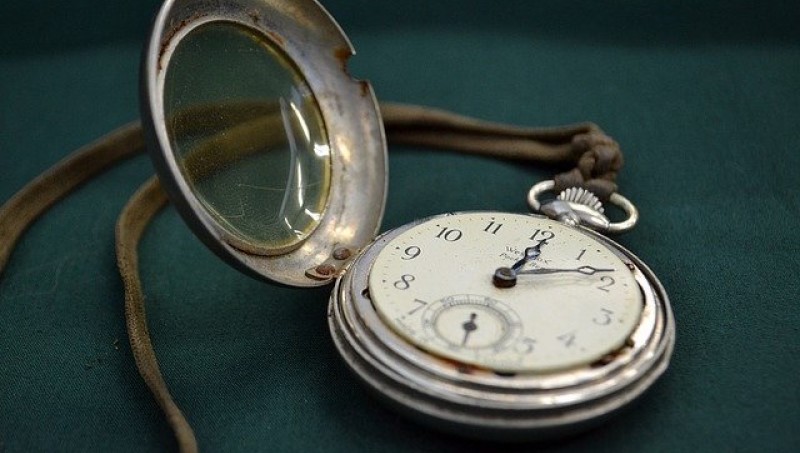Personal reflections on dementia
Harvey White became consultant surgeon at The Royal Marsden Hospital in 1976, and later held similar positions at King Edward VII Hospital for Officers, St Luke’s Hospital for the Clergy and The London Clinic. Harvey has also been much involved in charity work, particularly as the chairman of the Brendoncare Foundation from 1986 to 2003. He is currently Chair of the Vice Patrons Committee.
Harvey has very kindly shared an editorial about dementia that he has written from personal experience.
Through a Glass Darkly – Reflections on Dementia
The clocks had gone back, and after my wife had pushed her supper aimlessly around the plate, she wandered around and then went to the window. As it was dark outside, the glass was reflective; the light had also faded in her own life. She looked at herself in the window – pointing, wondering and occasionally talking to herself. Who can know what she was thinking or trying to say? Was she pointing a finger of blame at an individual or the world? Perhaps she was trying to say something through the reflection to those around her. Hopefully, she was experiencing moments of joyful recall rather than despair. We will never know, but, thankfully, whatever was going on in the recesses of her mind, superficially, she appeared to be in contented oblivion.
We had already lived through 20 years of dementia, with its loss of memory, reflex behaviour, wandering and character change which follow a disconnect between the higher centres and the reflex default programming of the rest of the brain. This often leads to changes in behaviour, such as hiding the most unusual of objects in the most surprising places and accusing those around of stealing prized possessions. Those in close proximity see a progressive unravelling of acceptable adult behaviour towards them and also in the sufferer’s own life – including random incontinence and sometimes violent behaviour. With great good fortune, my wife’s memorably kind, joyful, intellectually stimulating and artistic personality occasionally still drifts into view, only to be overtaken by a ‘Pooh stick’ of mental and emotional disintegration carried relentlessly on an uncontrollable eddy.
Primitive reflex behaviour supplemented by that embedded in childhood may take over. The one is titrated against the other in an apparently random way. They cannot be controlled or understood as part of the adult behaviour we have known previously. In her case, the main source of pleasure appears now to be nursing a doll in the belief that it is her child and taking the filling out of cushions – for which I can offer no explanation! Reason and rational communication have become but a treasured memory from the past.
She appears to be seeking somewhere she recognises from the past as she wanders up and down the corridor without knowing where she is or having any meaningful recognition of her family. Hoping to find her identity, she peers into the reflective glass of the door, but the image is blurred by condensation on the pane as well as her lack of comprehension.
It is like trying to study the heavens through a telescope with a dusty lens and whose position and focus are fixed. How can we be positive and make sense of all this sadness? Is there a crumb of comfort we can find to keep our own lives on course?
First, the fact that she is now in residential care means she is supervised and, at least, her bodily needs are met, thus making her superficially calm and relaxed. While surrounded by residents who relate to each other, loneliness is not apparent. Each morning she introduces herself to those around her whom she may not even remember having met before. Previously, at home with the family or a carer, loneliness and restlessness were sometimes evident.
Second, although our own grieving is prolonged and each visit akin to repetitive bereavement, the suspended mental and emotional disruption that is dementia must be used positively by the family to promote their own memories and appreciation of aspects of life together that has been lost. Sad as it is not to be able to say a meaningful farewell or a simple thank you for the sharing of a life, don’t be tempted to dwell forever on lost opportunities. Keep reprogramming your memory bank in a Pavlovian way with the happiness that you once enjoyed together. Extract precious memories and aspects of personality and character which you must now make your treasured heirloom and which it is your duty to preserve. It is much easier to do this while the life of the sufferer – however imperfect – continues.
To most of us, nature is kind by obliterating unhappiness and recycling joy. If this is not how you manage reverses in life, you must reboot your system. Spending time with someone with dementia can give us the opportunity to come to terms with misfortune – if only we are able to grasp at it. Sadness dominates initially at the loss of all those moments and mannerisms that were specific and particularly dear in the relationship. The realisation that they were not appreciated enough at the time is inevitable. The challenge now is how to keep them fresh in the memory? Our duty is to help preserve them by incorporating them into our own being and pass them on by precept.
The need to think positively becomes a real challenge, and at our time of life, we should be well practised in this! From John Bunyan’s ‘Slough of Despond’ that inevitably accompanies dementia, evil gases may arise and threaten sanity and stability. If recognised, they can be harnessed to strengthen our resolve to live out a different but fulfilling life founded on the respect, memories and happiness with a partner in previous years. This may not happen at all unless one actively observes the unconscious example and acceptance offered by the dementia sufferer. We must positively attempt to preserve those aspects of the lost personality which become increasingly precious in our own life. We must strive to incorporate them into our own being. Insight, understanding and compassion learnt from observing a partner with dementia can be employed in examining the imperfect reflection of our own life. Only then may we be able to make sense of how their suffering can lead to a realisation of our debt and previous dependence. Hopefully, this may bring some closure to personal grief.
– Harvey White –




